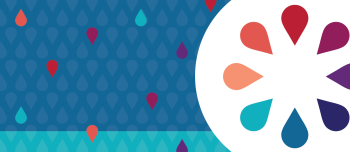To end Bleeding Disorders Awareness Month and celebrate National Doctors Day, Dr. Aaron Chen shares his story of how living with thalassemia inspired his calling as a physician. Watch his interview or read the full transcript below.
Dr. Cheng: Hi! My name is Aaron. I'm currently a resident physician at Mass General Hospital based in Boston; and I'm also a patient with thalassemia.
Can you share your thalassemia diagnosis story?
Dr. Cheng: I don't entirely recall the circumstances around my initial diagnosis. I know I was very young, and it happened when I was less than one year old my parents started noticing that I was not feeling myself. And so, when they took me to a doctor, they ran some tests and they told my parents that I have thalassemia which is a diagnosis that they had never heard of before.
For those who haven't heard of thalassemia, how would you describe it?
Dr. Cheng: Thalassemia is a blood disorder that is the result of a genetic change in one of the genes responsible for the production of red blood cells. So as a consequence of this genetic change, the red blood cells are not healthy. And so, patients with thalassemia need to undergo regular blood transfusions with blood donated by blood donors.
One of the consequences and one of the complications of thalassemia is that with all these repeated blood transfusions comes a lot of iron and so patients are prone to iron overload, which can lead to a lot of problems with various organs including the heart and the liver. And so, they need extra medication and extra attention to their iron to prevent the long-term side effects and consequences of blood transfusions as well.
How do you think having a rare disorder has affected the medical care and resources available to you - specifically if you've received care at a hemophilia treatment center?
Dr. Cheng: Having thalassemia has made it really important for me to consider where I was going to be geographically. When I started my medical training, I wanted to make sure that I was going to be treated at a center of excellence for thalassemia and that the physicians who would be taking over my care were those who would be very proficient in the field of hematology and gene therapy.
Has being diagnosed with thalassemia inspired your career path as a physician?
Dr. Cheng: I don't think that I would be a doctor without this diagnosis. I'm not sure how I would have stumbled upon the field of medicine otherwise. And you know, it's it's all because I had a great pediatric hematologist growing up who really understood me and my family and our needs and had a really holistic approach to to my medical health.
How does your diagnosis affect your daily interactions with your patients and patients' families?
Dr. Cheng: I think indirectly, having thalassemia has helped me to empathize and connect with patients that I encounter on a day-to-day basis. And I think that, you know, moving forward as I pursue the field of hematology in the future, I think that having thalassemia will also inform the way that I approach patient care.
A few years ago, you publicly shared your story with the CDC. What was that experience like?
Dr. Cheng: I was really honored to be the, essentially, face of thalassemia for that video series and share my experience. And I also wanted to take that opportunity to share with other patients and families who are dealing with thalassemia the strategies that I have used in my life to improve my own medical care, to pursue my dreams despite having something that most people would think of as intrusive. So I thought of that as a tremendous opportunity for me to share my experience and to help others who are struggling with it as well.
Are you open with people in your life about thalassemia? How do you rely on your friends and family to support you?
Dr. Cheng: I think nowadays, I'm generally quite open. I've publicly shared my story with thalassemia and I don't hold back when people ask me about it. I think I when I was growing up, I was a lot more hesitant and worried that it might change the way that people think about me.
But over the years, I've come to find that people really appreciate hearing about my unique story and, you know, good friends are good friends regardless of whether or not I have thalassemia. And it's it's helped me to grow more confident in my diagnosis and realize that it's just one part of my life and I don't need to be defined by my diagnosis.
NHF is rebranding this year to be more inclusive of rare disorders like thalassemia. As someone living with a rare condition, how would you like to see yourself better reflected and supported by the organization?
Dr. Cheng: I think the rebranding is an excellent change moving forward and I'll be really excited to see the other types of diseases that are encompassed by the organization. I think what has really been helpful for me and my peers with thalassemia is the creation of community. And, you know, as somebody living with thalassemia, I'm aware that this is not a disease that's very common in the United States; and so any way that we're able to connect, whether it be through social media or annual conferences or forums where we can share our stories and ask our questions, are always welcome.
This Bleeding Disorders Awareness Month, I'm starting a conversation about transitions of care for patients with rare genetic disorders.
To learn more about Bleeding Disorders Awareness Month, visit our page on what it is, why it's celebrated, and how you can get involved. Read about the history of National Doctors Day here.
For more information on the upcoming rebrand, contact Ilana Ostrin at iostrin@hemophilia.org.



